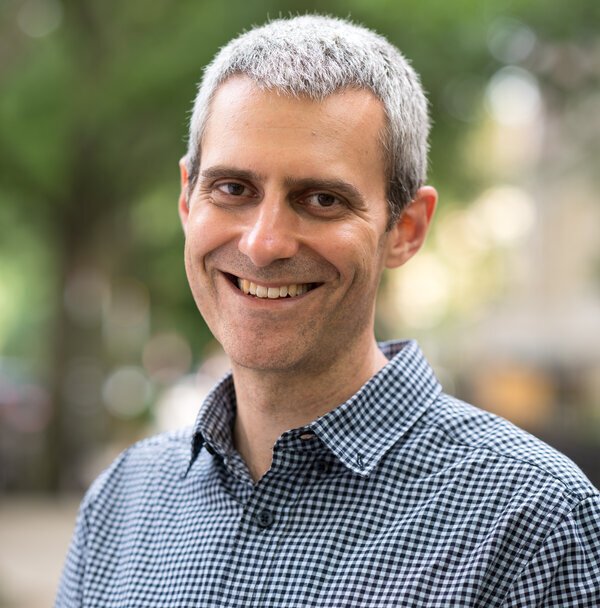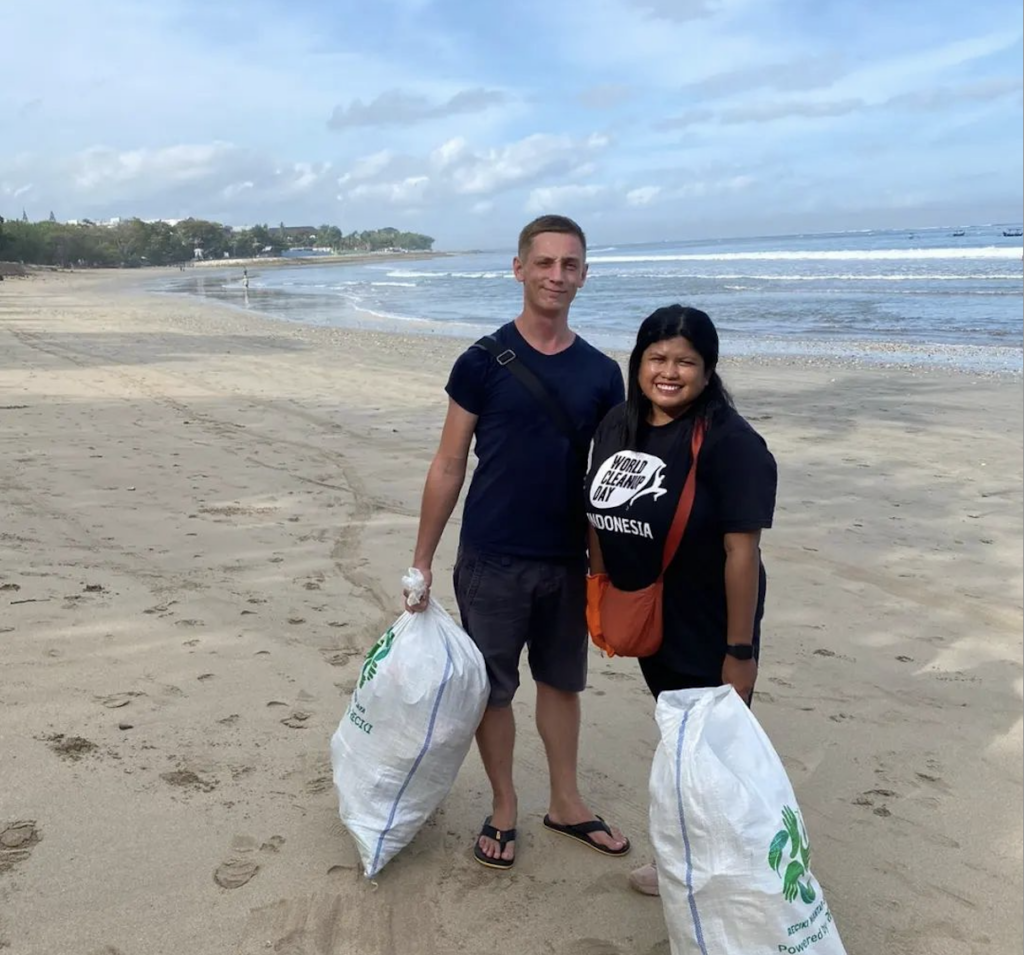On one sunny morning, in our Tallinn office, located in the hub of startups, restaurants and NGOs, we welcome Pablo Veyrat, a former journalist and current lecturer of Sociology and Social Pedagogy. We have invited him for the first “Coffee Morning” session, where an expert joins us (well you guessed it!) for coffee, treats and critical discussions. On this occasion, it’s the topic of AI and if it will lead us to the point where we cease to be what makes us human. You can read about his ideas and our questions here.
In addition to the trending topic of AI, we also talk about why democracies are shrinking or even collapsing. We also wonder if there’s anything to be done to protect and empower democratic systems. What could citizens and civic society do? What should we pay attention to?
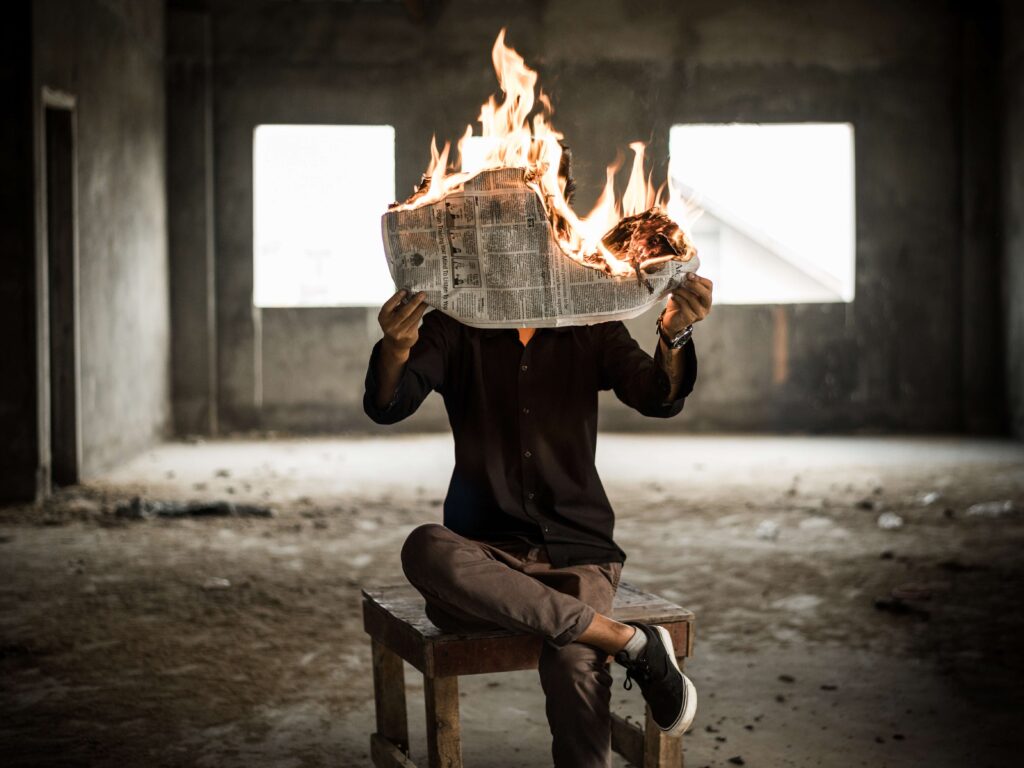
Photo by Nijwam Swargiary, Unsplash.
What suffocates our democracies?
Pablo starts the discussion on democracy with a question of why dictatorships collapse. “This can be caused by physical, corruption related, ideological or emotional collapse, but the main idea here is that people stop caring,” he says, adding that this might be quite well understood by most people interested in democracy.
“What is more interesting to me is how democracies exhaust themselves. As democracies grant people freedom and require them to motivate themselves, the bigger problem of emotional exhaustion lurks in the background. The main threat is apathy or stagnation. To maintain democracy, we need to ensure citizens believe it’s worth working for. Democracy requires more intellectual effort than autocracy. Being civically active is demanding. This is where education and free quality press become essential,” he adds.
Pablo adds that the more disappointed people are in democracy, the easier it is for the authoritarian systems to take advantage of it. This is a trend in many countries, including the formerly stable “Western democracies”.
If you are now curious about the democratic health of your country, we suggest that you consult the most recent report “State of Civil Society Report 2023” by CIVICUS, the global civil society alliance, and also look at the Democracy Index. However, also take on board the organisation that is issuing these reports, the Economist Intelligence Unit, which is the research division of Economist Group that publishes the weekly newspaper The Economist.
A tip on the topic: Check more than one source and compare them!
Democracy and “news avoidance”
Pablo explains that this is where the role of the press comes in: “The role of journalism is to motivate and stimulate political imagination. This also means providing reliable information which people need in order to make balanced decisions.”
Even though reading journalism channels is voluntary. In democratic societies, we are not forced to follow the news. In fact, many of us prefer to avoid news. News-avoidance is trending and at the same time, more and more people are using social media as their primary source of information.
The Reuters Institute report published last year detected an “epidemic of news avoidance”, claiming that on average 38% of those surveyed said that they often or sometimes avoided news, especially on topics related to COVID-19 and politics. The report also revealed that trust towards news is very low (on average only 42% of respondents said they trust the news). 93,000 readers from 46 countries participated in the survey, which makes one think: If we don’t want to read about politics and if we avoid being informed about such topics, how can we defend our democracies? Are we deciding to give up on them and spend hours scrolling entertainment content on social media instead?
Pablo believes that good journalism still has influence and, in light of the trends, should be considered even more important: “The press reinforces democracy by showing us that we all share something in common.” He explains that it’s built on public interest and needs to report on a series of ideas and events that affect us all individually and as groups.
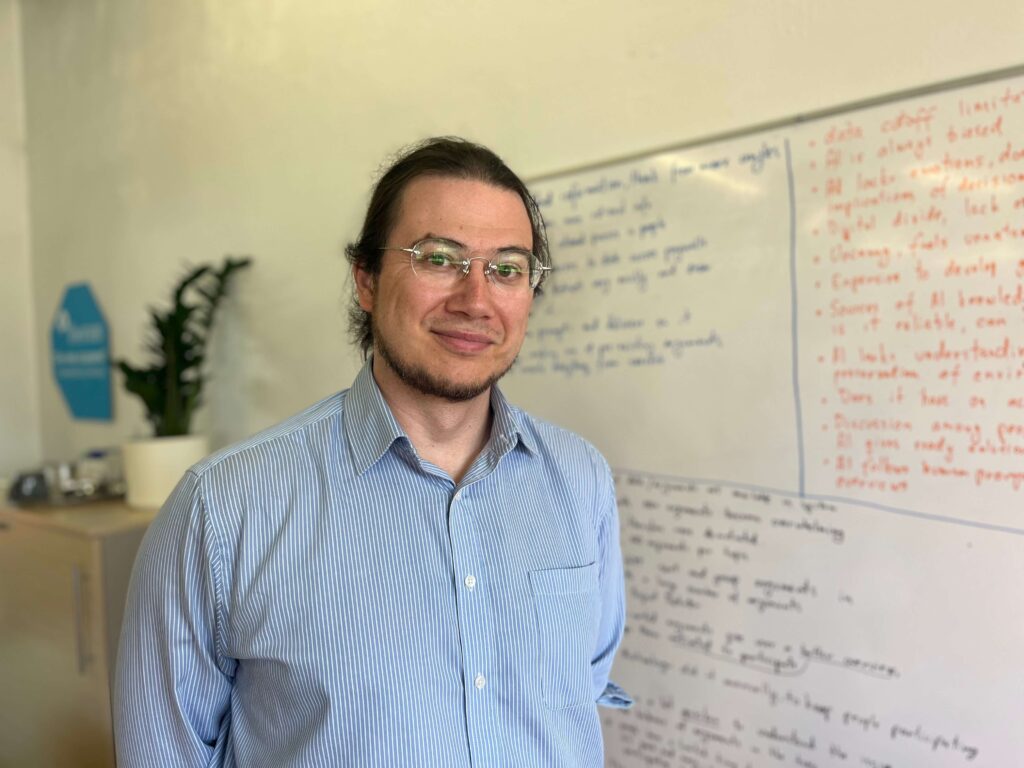
Pablo Veyrat. Photo: Meelika Hirmo
“Journalism is regulated to ensure honesty and accountability. Journalists, for example, have to show proof and publish the author of any story they publish. Quality news has to give a platform to at least two positions – one against and one in favour. Balance is important,” he explains and a good journalism story takes the person to their own informed opinion or decision.
“If journalism is not well done and not professional, and does not aim to serve the interests of the people, it creates fertile ground for alternative sources to manipulate us. It can also give more floor to propaganda,” Pablo admits.
He emphasises that it is very important to understand the media and to recognise what is news and what is an opinion. Considering the information overload, people have to be able to navigate and differentiate between news, opinion, entertainment, disinformation (false information spread deliberately to cause harm). Hence, media and information literacy skills have become basic “survival skills” for anyone seeking to navigate in society, especially now as the roles and genres of media are often blurred and there is a lot of false information around.
Tip on the topic 1: Integrate at least a few professional journalism channels to your information diet and make sure you don’t only consume entertainment or social media content as a primary source of information.
Tip on the topic 2: If you are afraid of information overload or too much negative content, you can schedule a short time span once a day or three times per week to follow professional journalism channels. You can avoid mental health struggles by avoiding consuming this content first thing in the morning and before going to bed. Taking some time in the middle of the day for a limited time might do the trick of keeping you informed but yet not exhausting you.
Don't believe in anything!
We dive into the topic of propaganda and how this is one of the factors that has and still is threatening democracies.
“Propaganda is manipulated content designed to benefit some certain person, organisation or any other entity. It’s very anti-democratic. It takes away the democratic freedom to make informed decisions. It’s anti-journalism. There has always been propaganda and it’s tremendously effective,” Pablo summarises.
He says the modern propaganda strategy is not to make you believe in one certain narrative, but to make people confused.
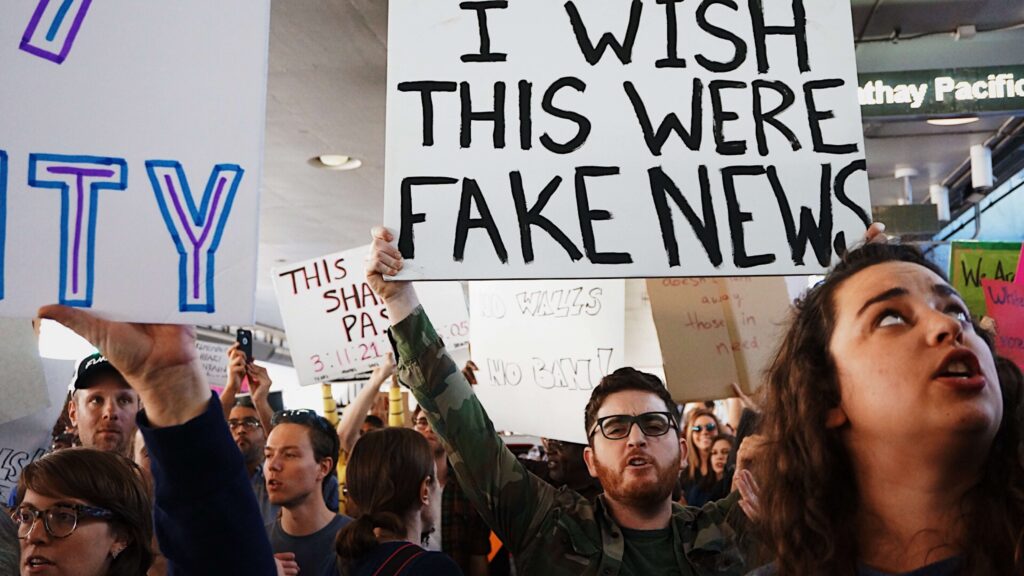
Photo by Kayla Velasquez, Unsplash.
“If we don’t know what to believe, we don’t believe anything. People who don’t know whom to trust and what to believe will not take action. For non-democratic players, they seek to discredit democracy in order to keep authoritarian non-democratic regimes in power. They try to drown democracies in their own controversy,” Pablo explains.
He brings examples of how such regimes use “info-tainment”. This is a good tactic that takes into account how journalists look for more interesting stories and attractive people. Another way to create confusion is to present very rude and outrageous ideas or/and flood the media and journalists with information. This type of content takes a very strong emotional approach. If your emotions are targeted strongly, that’s a sign to be critical.
Pablo also brings examples of how the endless flood of false information has exhausted the press, as it’s hard to check facts. However, it doesn’t take much time to create false information.
Weaponised relativism
I ask him about different perspectives and how people often say that there is no one truth but rather different experiences, which are all somewhat valid. Pablo says this narrative is commonly used in propaganda and can be called “weaponised relativism”. “If everything is relative, we tire out the citizens who eventually decide nothing is true. This leaves people isolated and passive or in some cases, influences them to behave in an extremist way.
He says such a case is Pizzagate, for example, where a disinformation campaign during elections in the United States accused several high-ranking members of the Democratic Party of being involved in human trafficking and a child sex ring. One of the establishments allegedly involved was a pizzeria in Washington, D.C. This fabricated narrative to discredit and harm and influence elections influenced a man to enter the pizza restaurant with a rifle, demanding that the children be released and threatening the lives of the restaurant staff. If you want to read more about the Pizzagate conspiracy story and its consequences, you can read the Washington Post article here, for example.
But the West uses propaganda, too?
We often hear a “counter-argument” that the West also uses propaganda and in the case of Russia’s war against Ukraine, that NATO has provoked this reaction, for example. Pablo is very concrete about this issue: “The “you too!” does not magically make it right to use propaganda to hurt peaceful neighbours.
He explains that the way non-democratic regimes use the media is completely different and this needs to be kept in mind when thinking about propaganda: “Moreover, such a comment attempts to furtively equate the actions of a governmental propaganda-machine that is purposefully built for disseminating state propaganda. On the other hand, the free press of democracies is defined by pluralism, self-regulation, accountability and professional deontology. The West does not use the press in the same manner and the same purposes as Russia because it cannot, for example, control it in the same way. Any attempt at manipulating, feeding or somehow instrumentalising the press can potentially lead to a strong political backlash. The West is not innocent, but both cases simply cannot be compared,” he emphasises.
Are we lost or is there any hope?
I can’t resist asking if we’re doomed – propaganda appeals to our feelings and it’s all over. “Are there any successful cases or studies that can give us hope on how to defend our democracies,” I ask Pablo.
“That is the task of a wide part of the field of political science. In “How Democracies Die”, Daniel Ziblatt and Steven Levitsky make a good job at stressing that the survival of a democracy is not so much about the institutional structures underpinning them as it is of the people who embody them and behave in ways that respect the spirit of those institutions: restraint, not treating the political field as a ruthless war where anything is justified in order to gain an advantage (as, i.e., the seizure of Supreme Court justices in the US by the Republican Party shows), and not damaging the wider constitutional structure are among the key elements,” he answers. He again emphasises the importance of constantly teaching democracy, civic behaviour, and the point and fragility of democratic institutions to everyone. “A democracy needs to be protected by all its citizens because it really is a fragile thing,” he adds.
“As to successful cases, we can look around the world. There are more democracies today than 50 years ago, although that might start to change. They all are facing their own challenges and we can learn from them. I think Finland, right next to us, is a great case study on how to “produce” democratic citizens, and the key remains in strong education that incorporates democratic values,” Pablo says, using Estonia’s northern neighbour as an example.
“Democracy is a never-ending task. Human collective life is in constant flux, and so the task of building and keeping a democracy never ends. It is harder than a dictatorship, but it pays off immensely more, and tends to last far longer as well. There are practices that help, but, at the end of the day, it is enabling the expression and cultivation of democratic values. Incidentally, the humanities have a larger role to play in this than we give them credit for,” he says.
Any tips for civic society activists defending democracy?
“The task of building democracy might make you feel self-righteous at times. My advice would be not to lose contact with reality, to compromise in order to secure gains and to never lose sight of the fact that the task of democracy is to empower individuals so they can make their lives better. And also, that it is a long-term, gradual struggle. In essence, listen to the people, understand their needs and have their best interests in mind, and persuade most of the time. Also, educate all the time, mainly through giving positive examples,” Pablo recommends.
He also says the way we can support democracy is by training ourselves in and teaching people about media and information literacy, focusing on raising a culture of critical thinking and discussion etiquette, empowering fact checkers, supporting professional media and, overall, by caring more about inequality and paying attention to less privileged groups.
